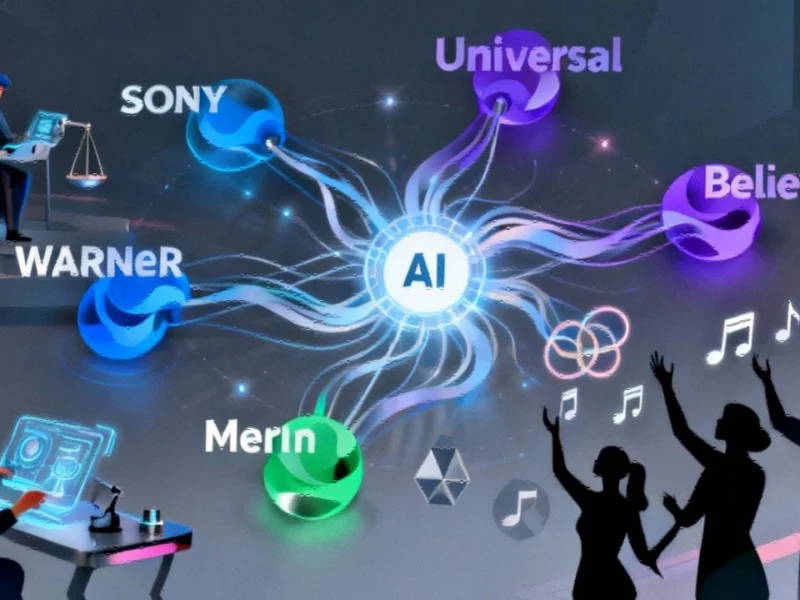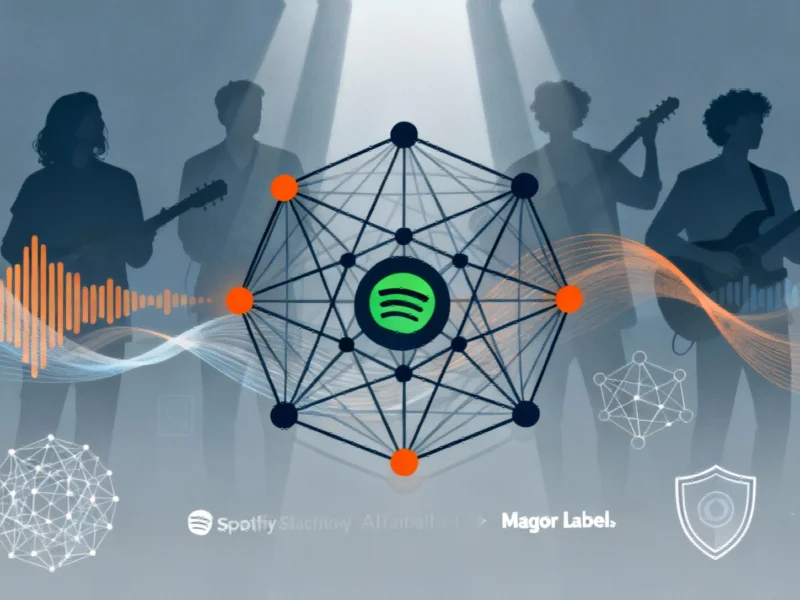Spotify’s Strategic AI Partnership with Major Music Labels
Spotify has announced a groundbreaking collaboration with the world’s largest music companies—Sony Music Group, Universal Music Group, Warner Music Group, Merlin, and Believe—to develop an ethical framework for artificial intelligence in music creation and distribution. This initiative represents one of the most significant industry developments in how technology companies approach creative rights in the AI era.
The streaming platform’s “artist-first” approach centers on four core principles: partnership with rights holders, voluntary participation, fair compensation, and enhanced artist-fan connections. “Technology should always serve artists, not the other way around,” emphasized Alex Norström, Spotify’s Co-President and Chief Business Officer, highlighting the company’s commitment to ensuring innovation supports rather than replaces human creativity.
Protecting Copyright in the Age of AI
At the heart of Spotify’s new framework is a firm stance on copyright protection, directly addressing growing concerns about unauthorized use of copyrighted material in AI training. “Some voices in the tech industry believe copyright should be abolished,” Spotify stated. “We don’t. Musicians’ rights matter. Copyright is essential.”
This position comes as major music labels have taken legal action against AI startups Udio and Suno for allegedly using copyrighted recordings without permission. The controversy gained momentum following the viral AI-generated track ‘Heart on My Sleeve,’ which mimicked vocals of Drake and The Weeknd without authorization. These related innovations in AI voice generation have sparked crucial conversations about ethical boundaries.
Building Responsible AI Tools for Artists
Spotify is establishing a state-of-the-art generative AI research lab focused on developing tools that benefit artists while ensuring proper compensation and transparent attribution. The company’s existing AI features, including its AI DJ and Daylist playlists, demonstrate its ongoing investment in recent technology that enhances user experience while respecting creative rights.
Universal Music Group CEO Sir Lucian Grainge reinforced the importance of explicit artist consent, stating his company will only license artists’ voices or songs to AI platforms with direct permission. This approach mirrors broader market trends toward ethical AI development across industries.
Inclusive Framework for Independent Artists
The partnership extends to independent creators through agreements with Merlin and Believe, ensuring smaller labels and artists benefit from the same protections as major label artists. Merlin noted that Spotify’s principles align with its mission to protect independent creators, while Believe praised the commitment to “responsible and value-creative AI.”
Industry leaders have widely endorsed Spotify’s approach. Rob Stringer, Chair of Sony Music Group, emphasized the necessity of “direct licensing in advance” for any AI products using artists’ work, while Warner Music Group CEO Robert Kyncl described the framework as “thoughtful” and appropriately guarded.
The Broader Context of AI Regulation
Spotify’s announcement comes amid increasing scrutiny of AI development practices across multiple sectors. As the global financial system faces new challenges from technological disruption, and as OpenAI’s Sora confronts ethical dilemmas with historical representation, the need for comprehensive AI governance becomes increasingly apparent.
The music industry’s proactive stance contrasts with other sectors still grappling with AI implementation guidelines. Meanwhile, legal actions surrounding technology implementation continue to shape the regulatory landscape across industries.
Setting a New Standard for Tech-Creative Partnerships
Spotify’s framework establishes a significant precedent for how technology companies can collaborate with creative industries while respecting intellectual property and artistic integrity. As detailed in our coverage of Spotify’s music lab partnership, this initiative represents a comprehensive approach to balancing innovation with ethical considerations.
The company’s commitment to voluntary participation ensures artists maintain control over how their work is used in AI applications, addressing fundamental concerns about consent in an increasingly automated creative landscape. This artist-centric model may well become the benchmark for future technology-creative industry partnerships.
As AI continues to transform creative industries, Spotify’s partnership with major music labels demonstrates that technological advancement and artistic protection can coexist when developed through collaboration and mutual respect.
This article aggregates information from publicly available sources. All trademarks and copyrights belong to their respective owners.



